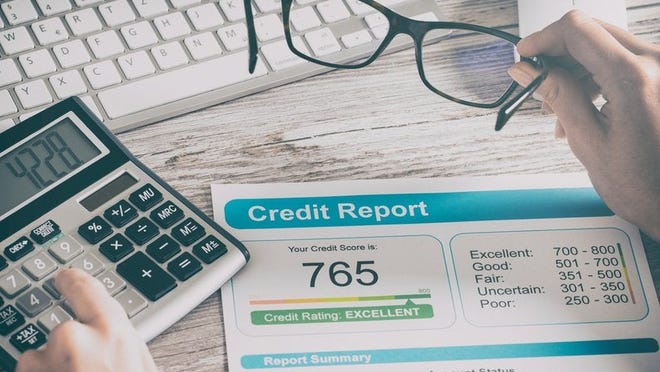
With mortgage rates low and spring homebuying season upon us, many Americans are looking to buy their first home or hunting for a new one.
But before you fall in love with that white colonial down the block, you’ll need to go over your finances. And a key part of that process is checking your credit score, which determines what kind of rate you’ll get on a home loan.
A credit score is a number between 300 and 850 that shows a consumer’s creditworthiness based on their bill payment history, current debt and other financial information. A high score could mean lower interest rates on a loan as lenders feel more confident that a person will repay their future debts.
A score of 800 or above is considered excellent, and most consumers have credit scores that fall between 600 and 750, according to Experian, a credit reporting agency.
On AnnualCreditReport.com you are entitled to a free annual credit report from each of the three credit reporting agencies. These agencies include Equifax, Experian and TransUnion. During the COVID-19 pandemic, the agencies are offering free credit reports every week through April 2022 so people can stay in control of their finances.
Here are tips for improving your credit:
Check your credit report
Getting an annual credit report will help you spot errors and fraudulent accounts. If you spot mistakes or errors, write to the credit reporting agency and information provider, such as your bank or credit card company, detailing the errors. They are required to investigate.
Find a sample dispute letter and get detailed instructions on how to report errors.
Pay down your debt
If you’re behind on your bills, bringing them current could help. While a late payment can remain on your credit report for up to seven years, having all your accounts current can be good for your scores. It also stops further late payments from being added to your credit history as well as additional late fees, according to Experian.
Pay your bills on time
Make sure you don’t miss loan or credit card payments by more than 29 days. Payments that are at least 30 days late can be reported to the credit bureaus and hurt your credit scores.
“If you consistently can make payments on time, it just shows that you’re a reliable borrower, and it shows that you’re a less risky individual,” says Andy Taylor, general manager at Credit Karma.
Avoid balloon payments
When you get the bill from your credit card, pay what you can. Don’t wait until you have the full amount.
“Make smaller payments as you can for over the course of the month, rather than the 15th or the first of the month,” says Taylor. “At the end, if can keep that credit card utilization down, and that will actually increase your credit score.”
Don’t open up too many credit cards
If you apply for too many cards over a short period of time, you might look like a greater risk.
“To a lender, it might appear that you’re a greater risk, because if It looks like you’re looking for cash, and maybe you’ve got a big purchase coming up, or maybe you’re kind of hurting for cash, you’re open up a bunch of credit cards,” says Taylor.


























